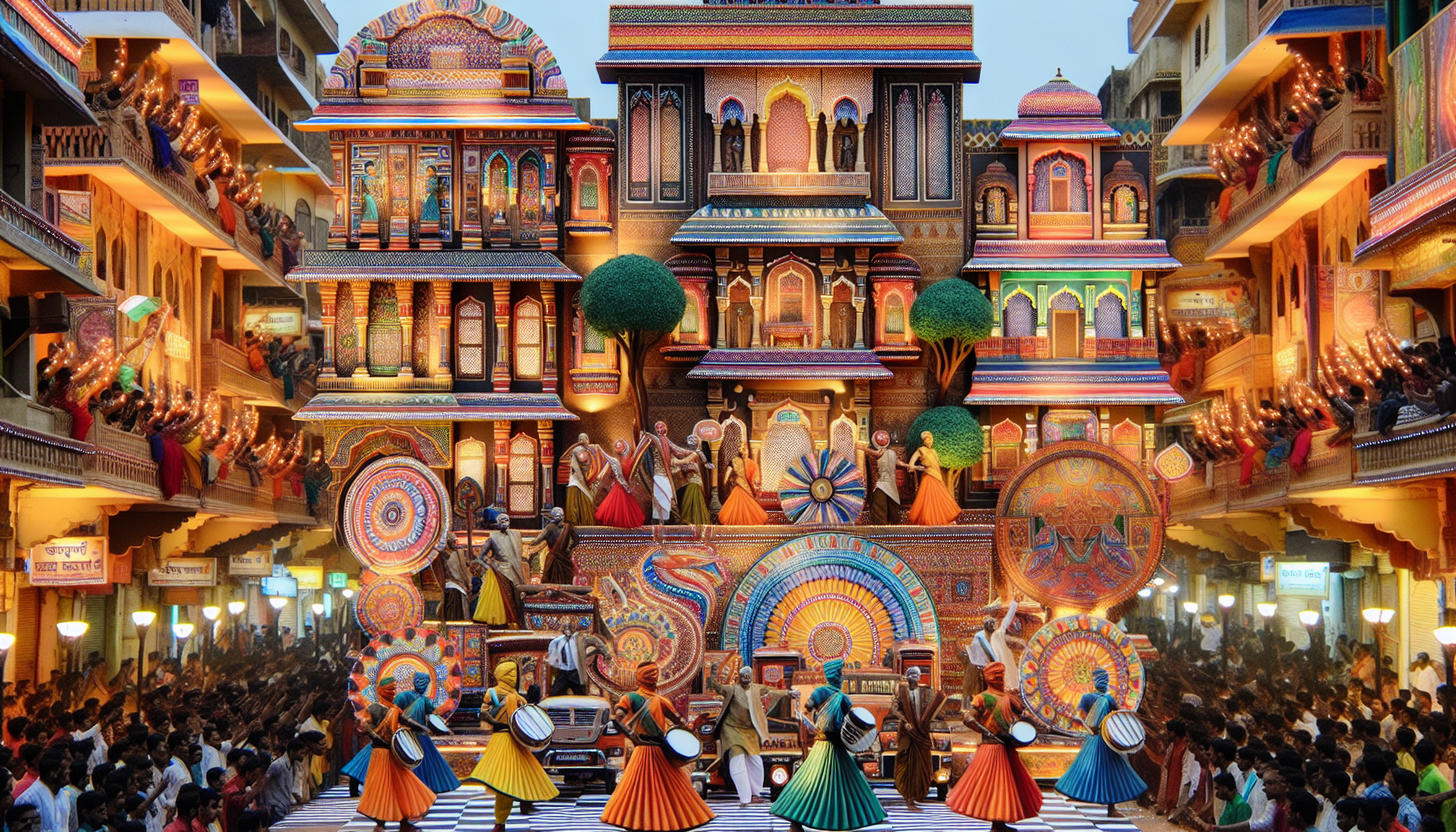India is a country that dances to the rhythm of its own colorful and diverse cultures. With a history as ancient as it is diverse, India's cultural and entertainment landscape is a rich tapestry woven from countless traditions, languages, art forms, and philosophies. From classical dance and music to Bollywood films and traditional festival celebrations, India's cultural heritage offers a unique and immersive experience that captivates locals and enthralls visitors from around the world.
One cannot delve into Indian culture without acknowledging its profound commitment to the arts. Indian classical music is categorized primarily into two genres, Hindustani and Carnatic, each sprinkled with rich melodic and rhythmic structures. Performers like Ravi Shankar and Lata Mangeshkar have taken these genres to international audiences, sharing the 12-note octave system and complex harmonies through instruments such as the sitar and tabla.
Meanwhile, Indian classical dance is a visual treat embodying the grace of history. With styles ranging from the intricate footwork of Kathak to the intricate storytelling of Bharatanatyam, these dances are more than mere performances—they are storytelling tools that convey Hindu mythology, spiritual ideas, and human emotions with awe-inspiring precision.
Beyond the conventional allure of classical art forms, Bollywood has emerged as a global symbol of Indian culture, producing an endlessly fascinating spectrum of films that combine drama, romance, action, and musical extravagance. Bollywood is not just a film industry; it is a way of life, an integral part of India's contemporary cultural landscape. It sets fashion trends, influences language catchphrases, and offers a form of escapism for millions of fans worldwide. Iconic actors like Shah Rukh Khan and Deepika Padukone hold sway over audiences in ways reminiscent of Hollywood legends.
Festivals are the heartbeats of Indian culture, offering a kaleidoscope of colors, sounds, and tastes that bring communities together in spirited celebration. Diwali, known as the festival of lights, illuminates the country with lamps and fireworks, symbolizing the triumph of light over darkness and good over evil. Holi, synonymous with joy and color, is celebrated with fervor as people smear powdered hues on each other, dissolving social barriers and indulging in sweet treats. Additionally, there are harvest festivals like Pongal in Tamil Nadu and Onam in Kerala, each marking the land's bounty with unique customs and rituals reflecting regional pride.
India's crafts and textiles also embed a sense of tradition and identity, blending aesthetics with functionality. From the intricate block prints of Rajasthan to the delicate Banarasi silk sarees, each piece tells a story of cultural evolution and meticulous artistry, often crafted using techniques passed down through generations.
Moreover, Indian spirituality and wellness practices have gained global prominence, especially yoga and Ayurveda. As a gift from ancient sages, yoga is a holistic practice that unites the body, mind, and spirit, offering tranquility and health benefits. Ayurveda, the traditional system of medicine, emphasizes balance and harmony, using natural remedies and lifestyle adjustments to promote well-being.
Finally, the culinary arts provide another dimension of cultural richness. Indian cuisine is the epitome of flavor diversity, with each region offering distinct dishes and culinary experiences. From the fiery curries of Andhra Pradesh to the delicate spices of Kashmiri cuisine, food in India is a journey within itself. Popular foods like biryani, dosas, and street delicacies like pani puri offer a vast palette for the adventurous eater craving authenticity and variety.
Whether through its vibrant festivals, expressive arts, or culinary delights, India's cultural and entertainment scene is a mesmerizing odyssey of human expression and creativity. It invites you to engage and celebrate life in remarkable vibrance, offering a glimpse into the soul of one of the world's most spirited nations.
